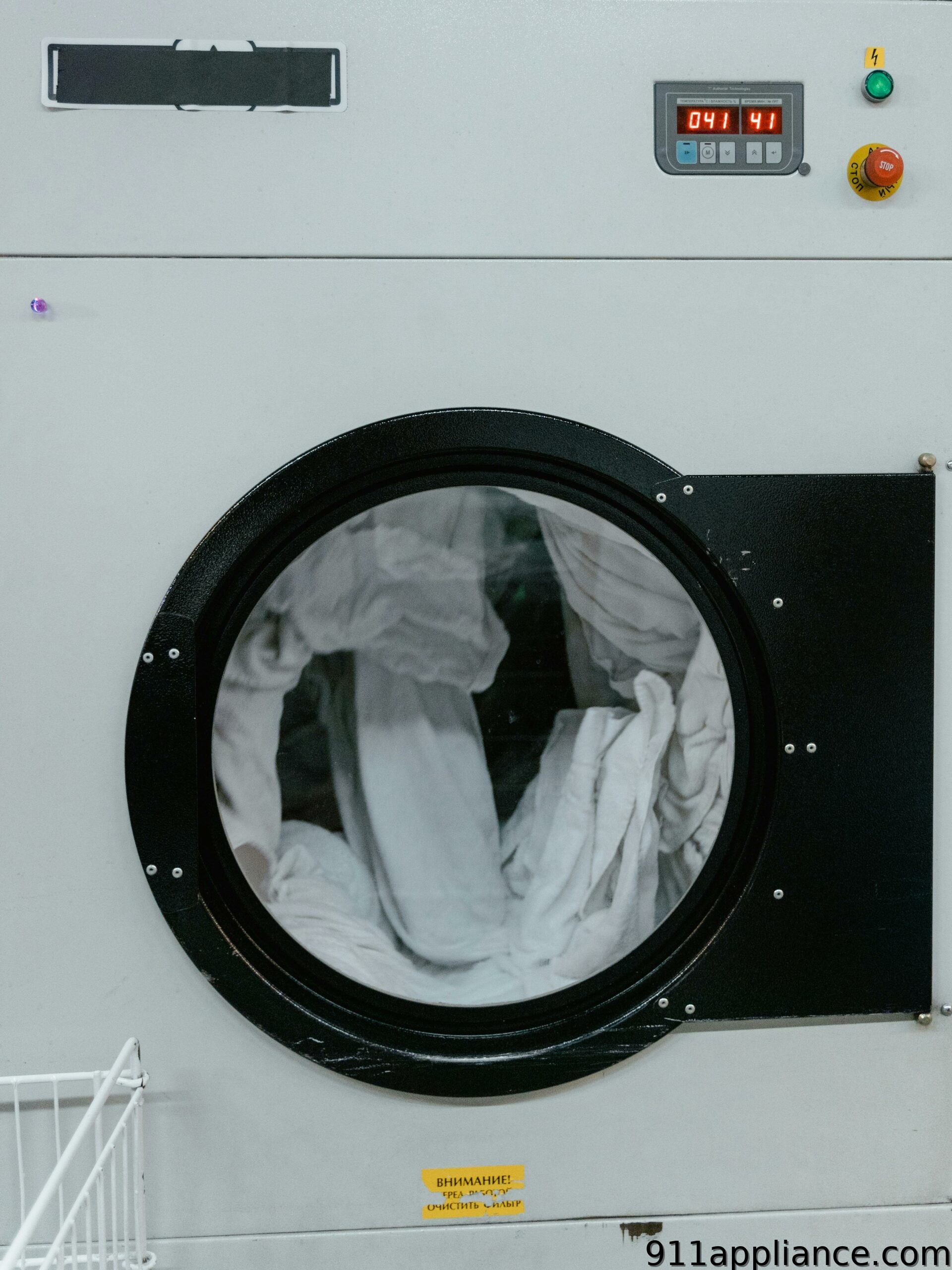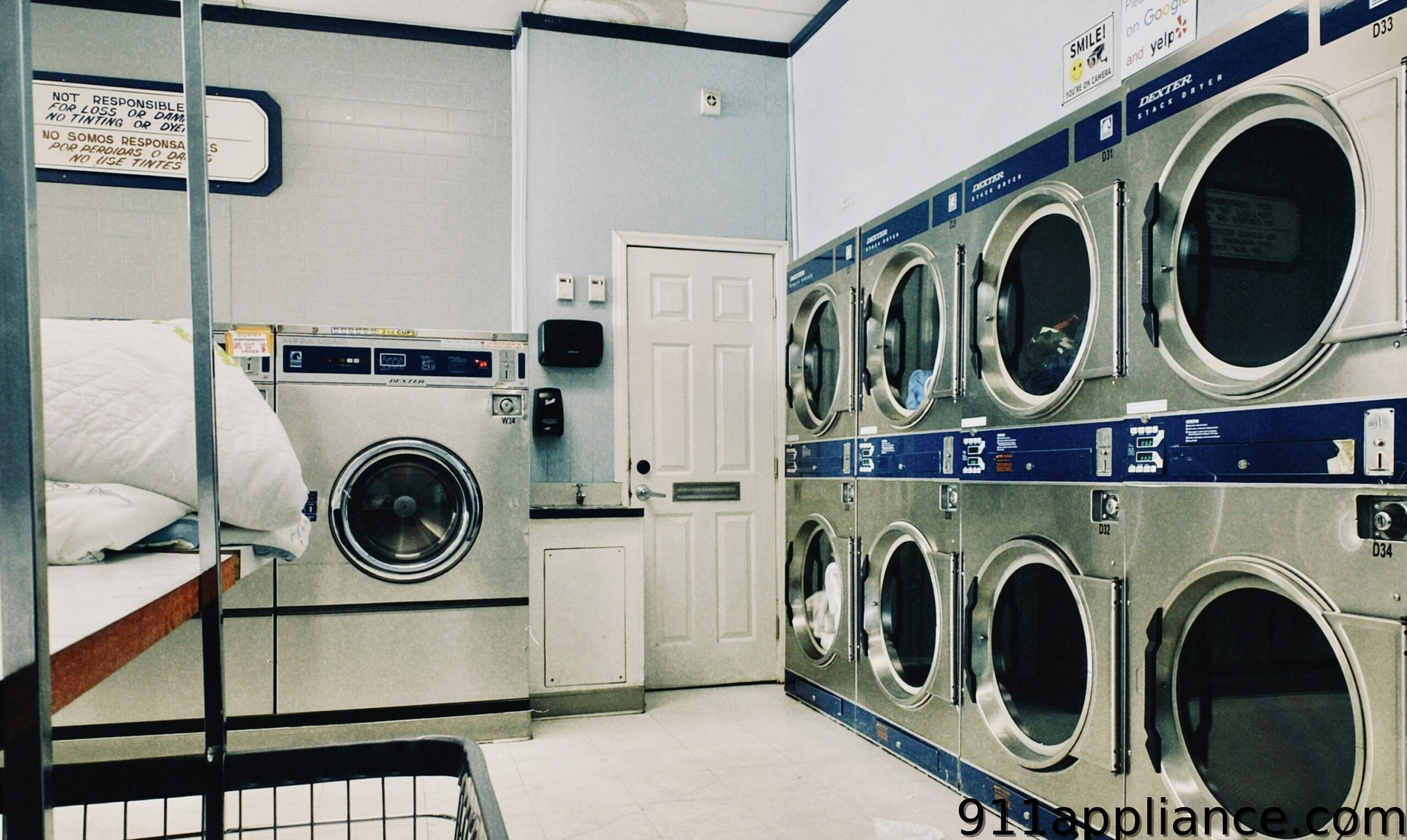DIY appliance repairs can be a cost-effective and rewarding way to fix common problems with your household appliances. By taking the time to learn how to troubleshoot and repair your appliances, you can save money on costly service calls and extend the lifespan of your appliances. However, it’s important to know when to call a professional. Some repairs may require specialized knowledge or tools that are best left to the experts.
Key Takeaways
- DIY appliance repairs can save you money and time
- Safety precautions are crucial before starting any appliance repairs
- Essential tools for appliance repairs include a multimeter, screwdrivers, and pliers
- Troubleshooting common appliance problems can help you identify the issue
- Replacing faulty parts in appliances requires careful attention to detail
Safety Precautions to Take Before Starting Appliance Repairs
Before you begin any appliance repair, it’s important to take safety precautions to protect yourself and prevent further damage to your appliances. One of the most important steps is to turn off the power and gas supply to the appliance you are working on. This will prevent any accidental shocks or gas leaks that could be dangerous.
Additionally, it’s important to wear protective gear such as gloves and safety glasses when working with appliances. This will protect your hands and eyes from any sharp edges or flying debris. Finally, when handling sharp tools, such as screwdrivers or knives, it’s important to use caution and handle them with care to avoid injury.
Tools You Will Need for Appliance Repairs
Having the right tools is essential for successful appliance repairs. For most repairs, you will need basic tools such as screwdrivers, pliers, and wrenches. These tools will allow you to remove screws, tighten connections, and make adjustments as needed.
In addition to basic tools, there may be specialized tools required for specific appliances. For example, a refrigerator repair may require a condenser brush or a vacuum attachment for cleaning coils. It’s important to research the specific tools needed for your appliance repair before getting started.
Investing in quality tools is also important for successful appliance repairs. Cheap or low-quality tools may break or not perform as well, making the repair process more difficult and time-consuming. It’s worth spending a little extra money on high-quality tools that will last and make your repairs easier.
Troubleshooting Common Appliance Problems
| Appliance Problem | Symptoms | Possible Causes | Solutions |
|---|---|---|---|
| Refrigerator not cooling | Warm temperature inside, frost buildup, unusual noises | Dirty condenser coils, faulty thermostat, malfunctioning compressor | Clean coils, replace thermostat, repair or replace compressor |
| Dishwasher not cleaning dishes | Dirty dishes after cycle, cloudy glassware, unusual noises | Clogged spray arm, malfunctioning pump, hard water buildup | Clean spray arm, replace pump, use water softener |
| Oven not heating | Cold oven, uneven cooking, burnt food | Broken heating element, faulty thermostat, malfunctioning control board | Replace heating element, thermostat or control board |
| Washing machine not spinning | Wet clothes after cycle, unusual noises, unbalanced load | Broken drive belt, malfunctioning motor, faulty lid switch | Replace drive belt, motor or lid switch |
When faced with a malfunctioning appliance, it’s important to first identify the problem before attempting any repairs. This can be done by observing the appliance’s behavior and listening for any unusual sounds. Once you have identified the problem, you can then begin troubleshooting.
In some cases, the problem may have a simple solution. For example, if your refrigerator is not cooling properly, it may simply be due to a dirty condenser coil that needs to be cleaned. By checking for simple solutions first, you may be able to fix the problem without having to replace any parts.
However, there may be times when replacing parts is necessary to fix the problem. In these cases, it’s important to use manufacturer-approved parts to ensure compatibility and proper functioning. It’s also important to follow a step-by-step guide or consult the appliance’s manual to ensure you are replacing the parts correctly.
How to Replace Faulty Parts in Appliances
Replacing faulty parts in appliances can be a straightforward process if you have the right tools and knowledge. It’s important to use manufacturer-approved parts to ensure compatibility and proper functioning. Using generic or off-brand parts may cause further damage or void any warranties.
Before replacing any parts, it’s important to turn off the power and gas supply to the appliance and unplug it from the wall. This will prevent any accidental shocks or damage during the repair process. Once you have removed the faulty part, carefully install the new part following a step-by-step guide or consulting the appliance’s manual.
When replacing parts, it’s important to avoid common mistakes such as overtightening screws or damaging delicate components. Take your time and follow the instructions carefully to ensure a successful repair. If you are unsure about any step of the process, it’s best to consult a professional.
Step-by-Step Guide to Fixing Refrigerators

Refrigerators are essential appliances in any household, and when they break down, it can be a major inconvenience. Common refrigerator problems include not cooling properly, leaking water, or making strange noises. By following a step-by-step guide, you can diagnose and fix these issues.
One common problem with refrigerators is a faulty compressor. The compressor is responsible for circulating refrigerant through the system and maintaining the desired temperature. If your refrigerator is not cooling properly, it may be due to a faulty compressor.
To diagnose and fix compressor issues, start by checking the condenser coils for dirt and debris. If they are dirty, clean them using a condenser brush or a vacuum attachment. Next, check the compressor for any visible signs of damage or leaks. If you notice any issues, it may be necessary to replace the compressor.
Regular maintenance is also important for keeping your refrigerator running smoothly. This includes cleaning the condenser coils regularly, checking the door seals for any leaks or damage, and keeping the refrigerator well-organized to ensure proper airflow.
Tips for Repairing Washing Machines and Dryers
Washing machines and dryers are essential appliances for keeping your clothes clean and dry. When they break down, it can be frustrating and inconvenient. Common washing machine problems include not draining properly, not spinning, or leaking water. Dryer problems may include not heating up or taking too long to dry clothes.
To diagnose and fix motor issues in washing machines and dryers, start by checking the power supply and ensuring that the machine is properly plugged in. If there are no power issues, check the motor for any visible signs of damage or overheating. If you notice any issues, it may be necessary to replace the motor.
Regular maintenance is also important for keeping your washing machine and dryer running smoothly. This includes cleaning the lint trap regularly, checking the hoses for any leaks or damage, and ensuring that the machines are properly balanced to prevent excessive vibrations.
Techniques for Fixing Dishwashers and Ovens
Dishwashers and ovens are essential appliances in any kitchen, and when they break down, it can be a major inconvenience. Common dishwasher problems include not draining properly, not cleaning dishes effectively, or leaking water. Oven problems may include not heating up or uneven cooking.
To diagnose and fix heating element issues in dishwashers and ovens, start by checking the power supply and ensuring that the appliance is properly plugged in. If there are no power issues, check the heating element for any visible signs of damage or burning. If you notice any issues, it may be necessary to replace the heating element.
Regular maintenance is also important for keeping your dishwasher and oven running smoothly. This includes cleaning the filters regularly, checking the door seals for any leaks or damage, and avoiding excessive buildup of grease or food particles.
Maintenance Tips to Keep Your Appliances Running Smoothly
Regular maintenance is key to keeping your appliances running smoothly and extending their lifespan. By following a few simple tips, you can avoid common problems and ensure that your appliances continue to perform at their best.
One important maintenance tip is to clean your appliances regularly. This includes cleaning the condenser coils on your refrigerator, cleaning the lint trap on your dryer, and cleaning the filters on your dishwasher. Regular cleaning will prevent dirt and debris from clogging the system and causing performance issues.
Another important maintenance tip is to check for any leaks or damage regularly. This includes checking hoses, seals, and connections for any signs of wear or leaks. Catching these issues early can prevent further damage and costly repairs down the line.
Finally, it’s important to avoid overloading your appliances and using them according to their intended purpose. Overloading can put strain on the motor or heating elements, leading to premature wear and tear. Using your appliances properly will ensure that they continue to perform at their best.
When to Call a Professional Appliance Repair Technician
While DIY appliance repairs can save you time and money, there are times when it’s best to call a professional. Some repairs may require specialized knowledge or tools that are best left to the experts. Additionally, attempting complex repairs without the proper knowledge or experience can cause further damage to your appliances.
Signs that you may need professional help include:
– The repair involves working with gas lines or electrical wiring
– The repair requires specialized tools or knowledge
– The repair is beyond your comfort level or expertise
When choosing a professional appliance repair technician, it’s important to choose a reputable and experienced technician. Look for technicians who are licensed and insured, and who have positive reviews from previous customers. It’s also important to get a written estimate before any work is done to avoid any surprises.
In conclusion, DIY appliance repairs can save you time and money, but it’s important to take safety precautions and know when to call a professional. With the right tools and knowledge, you can troubleshoot and fix common appliance problems and keep your appliances running smoothly for years to come. Regular maintenance is also important for preventing issues and extending the lifespan of your appliances. By following these tips, you can become a confident DIY appliance repairer and enjoy the benefits of a well-functioning home.
If you’re interested in learning more about appliance repairs and maintenance, be sure to check out the related article on 911 Appliance’s blog. In their post titled “The Importance of Regular Appliance Maintenance,” they discuss the benefits of keeping your appliances in top shape and offer helpful tips for maintaining them. Whether you’re dealing with a faulty part or simply want to prevent future issues, this article provides valuable insights. Don’t miss out on this informative read!
Can I Use Online Resources to Replace Faulty Parts in My Appliances?
Yes, you can use online resources for appliance repair to replace faulty parts in your appliances. There are plenty of websites and videos that provide step-by-step instructions on how to identify, order, and replace parts in various appliances. Using online resources can often save you time and money on professional repairs.
Table of Contents
- Key Takeaways
- Safety Precautions to Take Before Starting Appliance Repairs
- Tools You Will Need for Appliance Repairs
- Troubleshooting Common Appliance Problems
- How to Replace Faulty Parts in Appliances
- Step-by-Step Guide to Fixing Refrigerators
- Tips for Repairing Washing Machines and Dryers
- Techniques for Fixing Dishwashers and Ovens
- Maintenance Tips to Keep Your Appliances Running Smoothly
- When to Call a Professional Appliance Repair Technician
- Can I Use Online Resources to Replace Faulty Parts in My Appliances?
- FAQs
- What is the article about?
- What appliances can I repair using this guide?
- Do I need any special tools to repair my appliance?
- Is it safe to repair my own appliances?
- What are some common appliance problems that can be fixed using this guide?
- Can I save money by repairing my own appliances?
- Where can I find replacement parts for my appliance?



